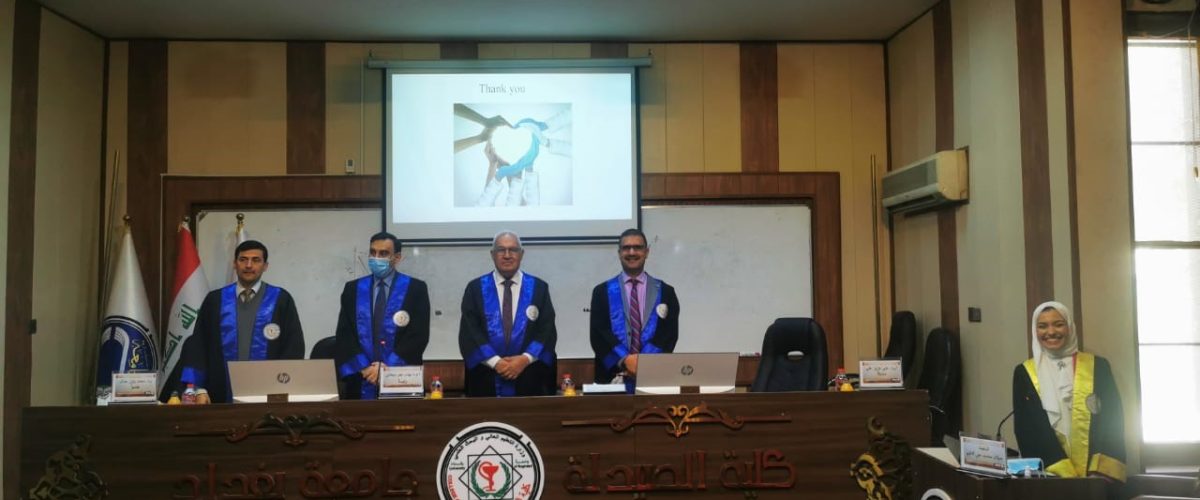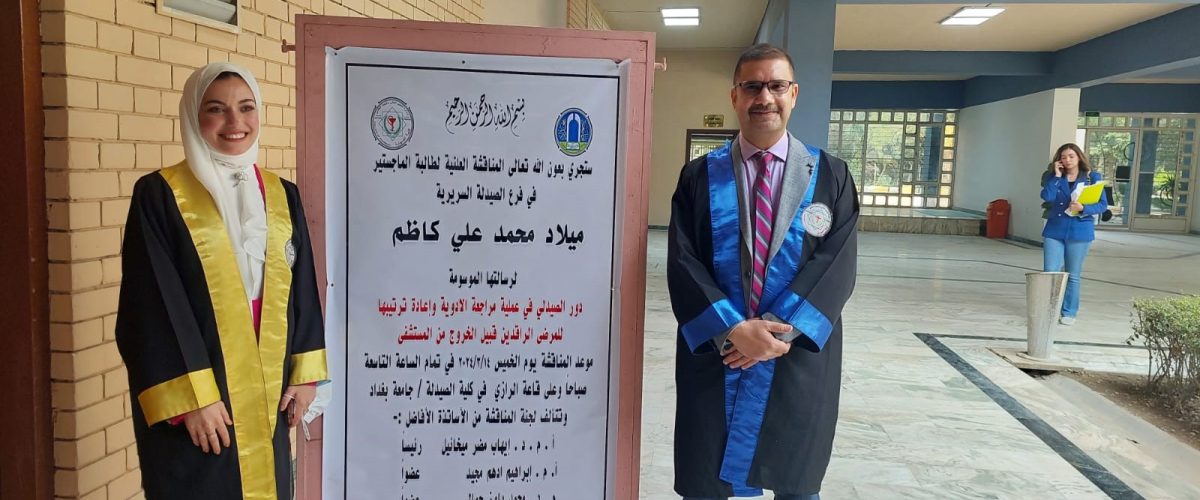The College of Pharmacy discussed the MSc thesis entitled “The Role of Pharmacists in Medication Reconciliation for Inpatients before Hospital Discharge: A Mixed Method Study” by the student Melad Mohammed Ali and the supervisor, Associate Professor Dr. Ali Azeez Ali Al-Jumaili, at the Clinical Pharmacy Department. The study aimed to measure the effect of pharmacist-led medication reconciliation services before hospital discharge on preventing potential medication errors. Additionally, the study aimed to explore the perspectives of physicians and pharmacists regarding the necessity of discharge medication reconciliation and identify the benefits and challenges that could face its implementation. The study included two phases: an interventional phase and another qualitative phase. The behavioral interventional phase was conducted in a general teaching hospital in Iraq, and it included three additional parts: a pre-education part, an educational session’s part, and a subsequent post-education part. For the qualitative phase, it included face-to-face interviews with the pharmacists and physicians working in the same study hospital. Thematic analysis was used to analyze the qualitative data generated from the interviews. The study found that 55% of the 100 participants had at least one potential medication error that was addressed by the researcher’s intervention. There was no significant reduction in the number of potential errors in the post-education group. Regarding the qualitative phase, all participants (physicians and pharmacists) supported discharge medication reconciliation adoption. The most frequently reported challenges to establishing discharge medication reconciliation were a lack of clear ministerial directions and suboptimal collaboration between physicians and pharmacists. The study concluded that the process of discharge medication reconciliation has benefits in terms of patient safety and addressing potential medication errors. However, it needs several pre-requisites to be implemented routinely, such as official ministerial enforcement and educational courses. The study recommended adopting discharge medication reconciliation routinely to solve medication errors and improve patient medication safety. Enforcing ministerial regulations is essential to implementing the discharge medication reconciliation service. The College sent the results of the study in an official letter to the Ministry of Health to benefit from it in the daily work of pharmacists in hospitals to prevent patients’ therapeutic errors prior to discharge from the hospital and to improve their medication safety.




